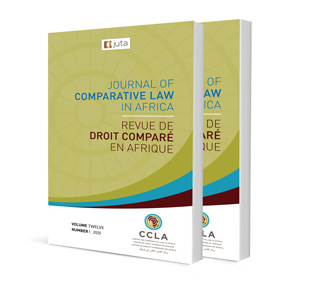
Directors’ duty to exercise independent judgement – English experiences and proposals for South Africa
Author: Brighton M Mupangavanhu
ISSN: 2521-2605
Affiliations: LLB (UFH), LLM (UKZN), PhD Commercial Law (UCT). Former Programme Coordinator: LLM in Corporate Law programme and Associate Professor of Corporate and Finance Law, Faculty of Law, University of the Western Cape. Now Associate Professor of Commercial Law, Faculty of Law, University of Cape Town.
Source: Journal of Comparative Law in Africa, Volume 12 Special Edition, p. 1-33
https://doi.org/10.47348/JCLA/v12/2025-SEa1
Abstract
Directors owe many duties to the company. To discharge these obligations effectively and to contribute to making quality decisions, the law requires directors to exercise independent judgement and unfettered discretion, especially in the collective functioning of the board and during decision-making processes. Situations such as outside board influences (in the case of nominee directors) and the influence of domineering figures are rampant in the collective functioning of the board. The law considers it a breach of duty for a director to allow themselves to be dominated, bamboozled, or manipulated by a dominant fellow director in a manner which disables independent judgement. South Africa recently experienced several corporate crises and collapses in many sectors, blamed on poor decision making caused by domineering persons in decision-making processes. This article considers relevant English law experiences before the Companies Act 2006, the codification of the duty to exercise independent judgement in s 173 of the Companies Act 2006, and the relevant case law principles that have evolved to date. From the analysis of English law, the article draws lessons and makes a solid case for expressing the duty to exercise independent judgement in statute in South Africa.